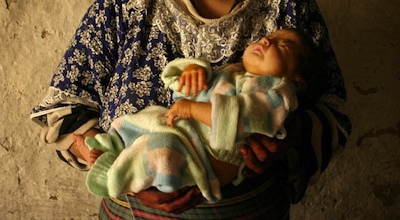Print  |
|


July 26, 2011: Slate Africa on the difficulty to grant Moroccan children a Berber name
Following the July 1st referendum on the new Constitution of Morocco, which was to enlarge the rights of the Berber-speaking community, Ali Amar’s article in Slate throws in a tricky question before the national authorities: Berber names are banned in Morocco. Will the new constitution, formalizing the Amazigh language, change that state of affairs?
The largest Amazigh populations are in Morocco and Algeria, where they stand for a total of 40 million speakers. The Berber have been struggling for the recognition of their rights and culture in these two countries since the 80s.
In Morocco, king Mohammed VI, in a gesture of political openness, had created a Royal Institute for Amazigh Culture in 2001. He had also established an education program in Berber languages at school, and allowed the radio and television to broadcast in these languages. Yet the question of naming had been left behind.

A woman and child, in the village of Tarart, High Atlas, Morocco - August 31, 2006. REUTERS/STR New
Since a 1996 law, vital records agents refuse to record newborn children whose names « aren’t Moroccan » (meaning « Arabic »), these names being suspected to « harm the customs of society or national security ». Thus a name may not be recorded if it does not appear on a specific listing agreed on by government services. The listing, which excludes Christian names, has even been sent to all the Moroccan embassies and consulates abroad to prevent Moroccan nationals living outside the country, including bi-nationals and the children of mixed couples, to infringe the law.
The article in Slate reports the position of a Moroccan consulate official in the Netherlands, land of emigration for number of Berber Moroccan nationals:
« We ban Berber names because they do not fit the identity, and because they pave the way to a proliferation of nonsensical names. » Yet here’s a country where one can name their daughter Shams (sun, in Arabic), but not Tafoukt (sun, in Amazigh).
Since 2000, the law grants the parents the right to appeal before a High Commission of Vital Records. It appears that over ten years, the commission, which has given a ruling on dozens of names, has accepted some but rejected most, causing endless appeal procedures. The consequences are suffered by children who thus find themselves with no legal identity whatsoever, along with all the issues implied in terms of schooling registration, passports, etc.
A 2010 bill inviting vital records officials to « show flexibility » and « carry out research before refusing a name » seems to be changing things, although the actual listings still count a few authorized names, adding to the dozens remaining banned…
Read full article here (French).








